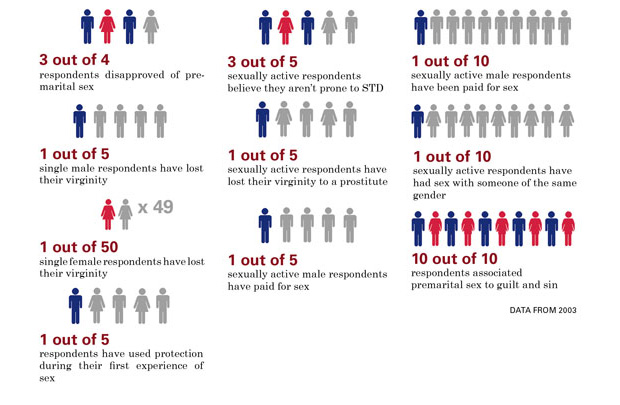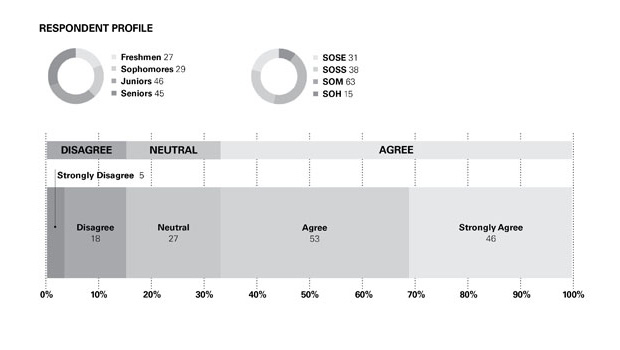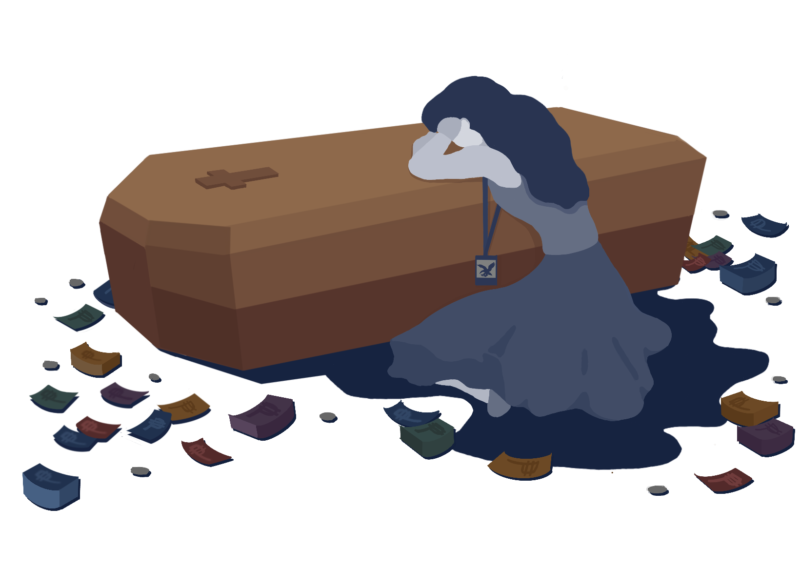It was 2006, and Plazy Ann Dulay, young at 18 and fresh from high school, seemed sufficiently equipped to take on the world. Little did she know, however, that she’d spend the next four years of her life mostly at home, taking care of a boy she suddenly found herself pregnant with.
It wasn’t in her plans at all; she was thinking about getting a job or attending college back then. Apparently, it wasn’t in her boyfriend’s plans either: he left Dulay by the time she gave birth, and never returned.
“I was supposed to get an abortion,” Dulay says in Filipino, but she shares her father convinced her to change her mind. “So I decided to keep the baby.”
Apart from general biology lessons in school, Dulay, now 22, says she does not remember taking sex education classes.
Debates, controversies
If teenagers like Dulay had received lessons about sex, would unplanned pregnancies like hers be avoided? Hers is just one of the many stories fueling the national debate on sex ed, especially after the Department of Education’s (DepEd) recent proposal to pilot test a sex ed program in selected schools nationwide. Following much publicized opposition, the plan has since been put on hold, at least until after consultations with the Catholic Bishops’ Conference of the Philippines (CBCP) are held. Nevertheless, the debate about the issue rages on, due in no small part to the great implications these educational policies have on Filipino society.
The educational program in scrutiny, entitled “Institutionalizing Adolescent Reproductive Health through Life Skills-Based Education,” is a project of the DepEd with the assistance of the United Nations Population Fund (UNFPA). The program aims to effectively address the reproductive health concerns of adolescents.
The program is under fire from some groups who fear that it may lead to promiscuity among the youth. Proponents, on the other hand, stress the role of educational institutions in helping adolescents make informed decisions about sex.
Age-appropriate education
The Ateneo finds itself between these two opposing views. For Ateneo Grade School (AGS) Headmaster Fr. Norberto Bautista, SJ, though, teaching about sex does not mean having to divorce it from the Christian perspective the school promotes.
“We don’t have a subject [named] sex ed,” Bautista clarifies. Instead, the topic is integrated within three subjects: Christian Life Education, science, and guidance sessions.
Ateneo High School (AHS) guidance counselor Carlo Carlon says both the AGS and the AHS would rather refer to the study of such matters as ‘sexuality education.’ “Sex ed connotes a different meaning… what comes to mind [is the] act itself, of sex. But sexuality is a very broad term.”
“If you talk about human sexuality, it involves the entire human person,” says Mac Ignacio, Child Development Center Coordinator for the AGS. “Sex is just one part… Our boys are [conversant in] human sexuality.”
According to Christian Life Education subject area coordinator Aimee Geraldez, discussions on Catholic sexual morality start in Grade 6, based on the CBCP-sanctioned Catechism for Filipino Catholics. This continues onto the AHS through the Freshman Adolescent Sexuality Talks, a series of sessions to help the students deal with teen concerns such as premarital sex, masturbation, and homosexuality. Carlon thinks the talks are liberal in that there are no censored topics.
‘Moral decay’
But the proposal to include sex ed continues to meet resistance from the Church and parent groups, who fear that it may result into a “moral decay” among the youth. They contend that educating children about sex should be left to the parents. Furthermore, while the DepEd “claims to foster values, restraint and responsibility,” the opposition says that the program implies that sex is okay as long as it does not lead to unplanned pregnancies or sexually transmitted diseases.
In a June 19 Philippine Daily Inquirer article, Kidapawan Bishop Romulo de la Cruz said the Church will not allow sex ed to be taught in Catholic schools, saying that it could pose as a danger to children by awakening their sexual curiosity.
Safeguard against abuse
Proponents, however, say that the parents themselves may either be uninformed or reluctant to talk about sex with their children. Worse, unplanned pregnancies may eventually become societal problems; that places the burden of responsibility on the government.
In a July 4 statement published on the ABS-CBN website, the Gabriela Women’s Party and Salinlahi Alliance for Children’s Concerns expressed support to educate children on reproductive health and sexuality.
“The values formation of the children is a concern of all institutions in the society,” they said. “Therefore, sex ed in the classrooms does not necessarily filch the parents of their duty, nor excuse them of their responsibility.”
“The baseless assumption that sex ed in schools would make children ‘sex-obsessed’ only proves that there is indeed a need for it,” they said. “Appropriate education [is] necessary to help children sort out information that impresses in them misguided connotations pertaining to sex.”
Whether or not sex ed increases teen sexual activity has already been researched in a study jointly sponsored by UNESCO, UNAIDS, UNICEF, WHO and the UNFPA. Commissioned two years ago, the study, titled “International Technical Guidance on Sexuality Education” reviewed the impact of 87 sex ed programs on sexual behavior.
The findings were consistent: no sex ed program resulted in a hastening of the initiation of sex, or in an increase in the number of sexual partners. 66% of the case studies suggest that sex ed programs mostly had no significant impact on the frequency of adolescent sex, but a decrease in frequency was also noted for 31% of the cases. Only 3% showed an increase in frequency.
Moral responsibility
Even with the controversies surrounding DepEd’s sex ed proposal, both Carlon and Bautista think teaching about sexuality is a responsibility of schools.
“As a Catholic school, it is a moral responsibility to teach our students to become mature [and] responsible persons,” Carlon says. “It is also important that students are taught how to appreciate their sexuality and also to respect the sexuality of others.”
Carlon does not think the subject may lead to increased sexual behavior. Sexual curiosity, he says, is a developmental characteristic of teenagers, with or without sex ed.
But Bautista believes that certain precautions and preparations should first be addressed.
“It should be age appropriate and holistically treated,” he says. “The curriculum, the content, the methodology, and the treatment are very important aspects in judging whether sex ed—the DepEd way—is good or not.”
Need to know
If she had not gotten pregnant, where would Dulay be now?
“Maybe I’d have had a job, or I’d have been going to college… but the chance has gone now,” Dulay says. She wishes she could work to help out with the family expenses.
Asked if she regrets getting pregnant at such a young age, Dulay answers yes. She says that she just stays at home—neither at work nor in school, which she says she would have wanted. Her motherly obligations now tie her down and deprive her of the many things she used to do.
It is difficult to ascertain if sex ed could have prevented Dulay’s untimely pregnancy. For the students of the Loyola Schools, however, sex ed will allow teenagers to make more informed decisions. In a survey conducted by the Ateneo Statistics Circle for The GUIDON, 122 respondents from the Loyola Schools were asked about their stand on the DepEd’s sex ed proposal. 99 either agreed or strongly agreed with it, while 23 either disagreed or strongly disagreed. (See sidebar above.)
Some respondents agreed with DepEd’s proposal but disagreed that grade school students should be included. “Grade school [students] are too young,” comments one senior. “Educate on population, yes; on sex itself, no.”
A freshman says teaching about sex is a parent’s duty. “The sanctity of sex can never be enclosed in a classroom or a book,” he says. On the other hand, a senior thinks “educated discussions” about sex are better than “malicious conversations” with other pre-teens.
Another says, “It is time to be realistic and pragmatic about our solutions. Sex ed classes are a necessity. Opposition to it is overblown.”
One senior simply commented, “Kids need to know.”
TEENS + SEX BY THE NUMBERS
Research by Emmanuel D. Delocado
To get a clear picture of sexual activity among the youth, the University of the Philippines Population Institute and the Demographic Research and Development Foundation, Inc. surveyed 20,000 Filipinos falling within the 15-24 age bracket. The study, called the Young Adult Fertility and Sexuality Survey (YAFS-III), revealed the following information:
Ateneans on Sex Ed
Just this month, the Ateneo Statistics Circle surveyed the Ateneo community with the question, “What is your stand on the DepEd’s plan to hold sex education classes for grade school and high school students?” The results are as follows.
Study conducted by the Ateneo Statistics Circle Research & Consultancy Department; Commissioned by The GUIDON








